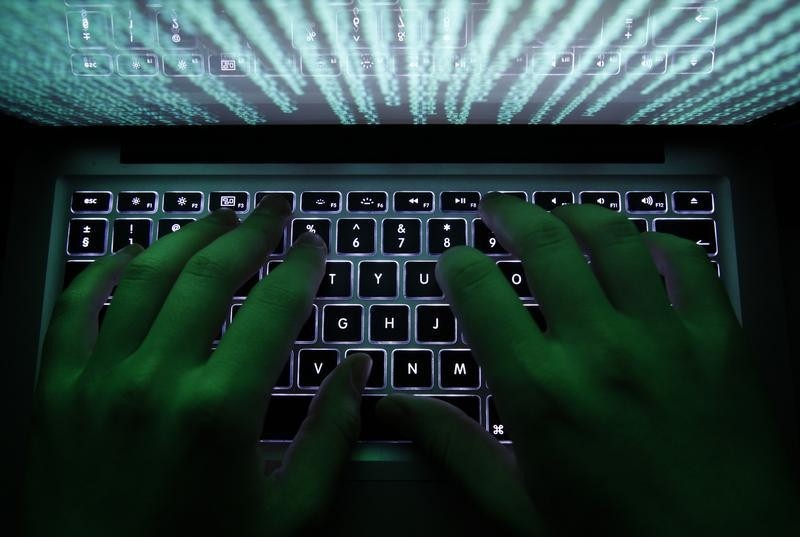By Tim Hepher and Sarah Young
LONDON (Reuters) - A broadening wave of cyber attacks is drumming up new clients for defense companies as anxiety about the loss of sensitive data spreads from military chiefs to company bosses.
Banks, utilities and media groups are the new customers of defense companies who are generating a growing proportion of their revenues from cyber security, helping to offset lower spending by Western governments on traditional weapons.
Military chiefs at an arms fair in London this week warned that far away from the battlefield, cyber attacks have opened up a new front where companies as well as governments must defend themselves.
"It will no longer just be the physical space that is contested, but the virtual space also, and the latter contest may even come to dominate proceedings," Air Chief Marshal Andrew Pulford, head of Britain's Royal Air Force, said.
Among recent attacks, hackers claiming to be supporters of Islamic State knocked out channels of French television station TV5Monde in April. Sources familiar with France's investigation have, however, suggested the hack was the work of Russians linked to the Kremlin.
Islamic State are nonetheless seen as a growing threat.
"There is evidence that their capabilities are improving," Adrian Nish, a physicist who runs cyber threat intelligence at BAE's Applied Intelligence business, told Reuters.
Hakan Buskhe, Chief Executive of Sweden's Saab, warned the cyber threat was growing by the week and changing shape just as fast.
"I think that is the biggest issue that the defense industry, especially in Europe and the U.S., will face going forward," he told Reuters.
UNDER ATTACK
Britain's BAE Systems (LONDON:BAES), Europe's biggest weapons maker, now counts customers in the banking, insurance, professional services, legal, energy and media sectors.
Nish said the spread of customers reflected the growing reach of cyber predators.
"I think what has changed is the increased targeting of other sectors," said Nish, whose unit's order book rose 37 percent in 2014, making it one of BAE's most robust.
Technology research firm Gartner estimates cybersecurity spending worldwide will rise 8.2 percent in 2015 to $77 billion and reach $101 billion by 2018.
Defense firms claim they are better placed than the IT sector to counter the most sophisticated threats because of their longer tradition of protecting complex systems: a task that owes as much to state-of-the-art data analysis as raw technology.
"You need to do a lot of intelligence digging to figure out that actually there's some bigger picture here," Nish said.
Defense companies have been hardened by what they describe as escalating cyber threats to their own networks, coupled with traditional espionage attempts.
For example, hackers and human spies have stepped up attempts to infiltrate Saab as it becomes a growing force in the fighter jet world and expands into submarine technology.
CEO Buskhe declines to identify the source of the attacks, but notes they rose after the Swedish company won a fighter deal and bought the marine defense unit of ThyssenKrupp.
During the two-decade lull in tensions following the end of the Cold War, Saab received "maybe a couple of hundred" cyberattacks on its systems every week, according to Buskhe.
When it signed a new Gripen fighter contract with Sweden in 2013 this rose immediately to 25,000 a week and it was recently running at some 40,000 attempts.
"We have a new situation with new threats and different ways to take our knowledge that we are working on each and every day and so far we have been successful. But we don't take anything for granted," Buskhe said.
(The story was refiled to substitute the last name of the CEO for first name in final paragraph)
